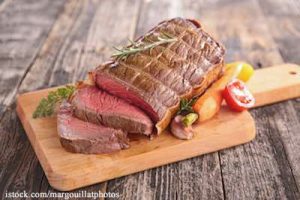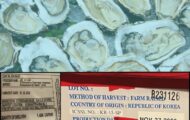A $4,000,000 class action settlement has been reached against XL foods in Alberta, Canada. A huge beef recall and E. coli O157:H7 outbreak four years ago sickened at least 18 people in Canada. The settlement is available for anyone sickened or who suffered an economic loss in the United States or Canada.
 The class action lawsuit was filed in 2013. A review found that the 2012 outbreak was caused by a lax approach to food safety. That review also found that XL Foods was not prepared to handle a large recall. About a million pounds of beef was recalled in the United States in 2012, which included about 1,800 different types of beef products. About 1.5 million pounds of XL Foods beef was recalled in Canada. After an import ban, XL Foods was cleared to ship beef to the United States again in December 2012.
The class action lawsuit was filed in 2013. A review found that the 2012 outbreak was caused by a lax approach to food safety. That review also found that XL Foods was not prepared to handle a large recall. About a million pounds of beef was recalled in the United States in 2012, which included about 1,800 different types of beef products. About 1.5 million pounds of XL Foods beef was recalled in Canada. After an import ban, XL Foods was cleared to ship beef to the United States again in December 2012.
The deadline for filing a claim is August 17, 2016. The class action alleges that XL Foods “negligently produced certain beef products processed at the Brooks facility,” and that “XL Foods was negligent in the design and implementation of control, sampling and testing procedures and that, upon discovering the possible E. coli contamination, XL Foods was negligent in managing the resulting product recall.”
E. coli O157:H7 bacteria is often found in cattle. Those animals lack a gene that would make them sick from the bacteria. The bacteria is excreted in poop. When these animals are slaughtered, the intestines may explode, which can contaminate the carcass. Then, when the carcass is carved up into cuts, the bacteria can spread onto the surfaces.
This issue is especially problematic for ground beef products and mechanically tenderized whole beef cuts. The grinding process used to make ground beef spreads the bacteria all through the product. Then, when that ground beef is used to make hamburgers that are not well cooked to 165°F, the E. coli bacteria can make people sick. Mechanically tenderized cuts, which include steaks and roasts that are pierced by small needles or blades, have the same issue. The cutting process can force the bacteria deep into the meat. When a steak is served rare after this process, people can get sick.
The outbreak in Canada ended in December of 2012. The recall for contaminated beef was expanded nineteen times. JBS Foods took over the XL plant in the fall of 2012. The USDA issued a public health alert for XL beef products in October 2012.




